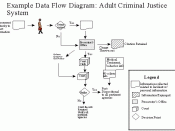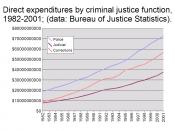The idea of a crime is highly relative or dependent. Scientific methods are used by criminologists to study the nature, extent, cause and control of criminal behavior. The concept of the study of crime emerged in the 19th century nevertheless the concepts of crimes have altered with times due to the emergence of modern laws. The two theories in question in this paper are structural consensus theories of crime and structural conflict theories of crime.
1Amidst the constant debate and theoretical clashes on whose perspective is most commendable, criminologists have agreed that, when studying crime and criminality, one cannot rule out other explanations, whether psychological, behavioral, radical, or developmental. Each theoretical explanation contributes some reasonable interpretation of this multifaceted concept called crime and what causes people to engage in it.
Cultural conflict theories may be classified as part of the ecological school of criminology, for they look at crime as a part and parcel of changes taking place in the surroundings.
In essence structural theories endeavor to make clear why people commit crimes as connected to the social structure of society. These theories are comprehensive and they talk to in relation to the queries
on the subject of divergence found in the culture and the people in that culture. These theories engage problems which basically have an effect on the individual and are fundamentally beyond control of that person to transform.
2 According to a study on Sociological theories of education both the Consensus and Conflict theories are structural theories. Consensus theory is also known as Functionalism. Conflict theory is strongly related with Marxism. Social Constructionism is for the most part Symbolic Interactionism.
Numerous theories have endeavored to be aware of social behavior at different levels of exploration. Consequently Functionalism and Marxism look into the relationship amid schooling and society.


